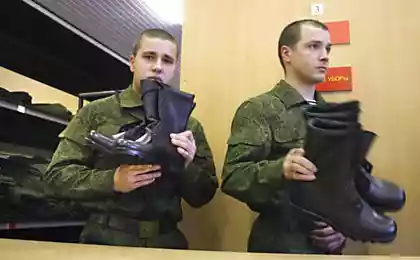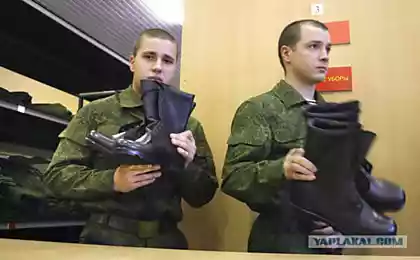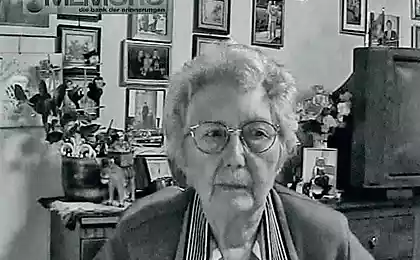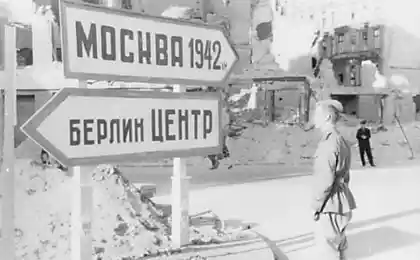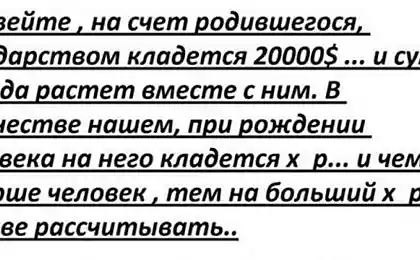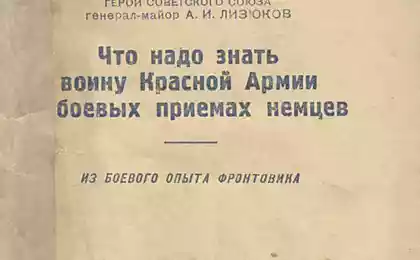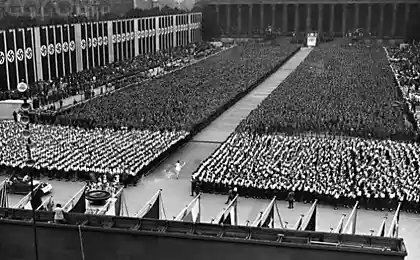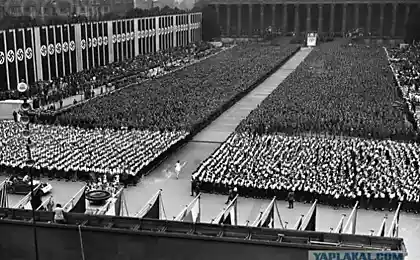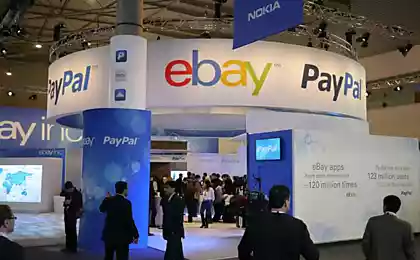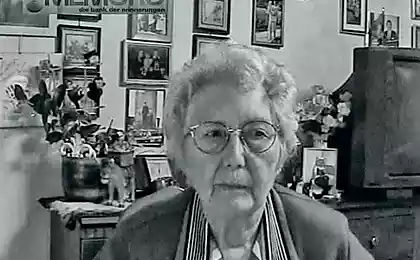2535
Office in Berlin than Russian startups differ from German - and why you need geoservices good old shopping offline
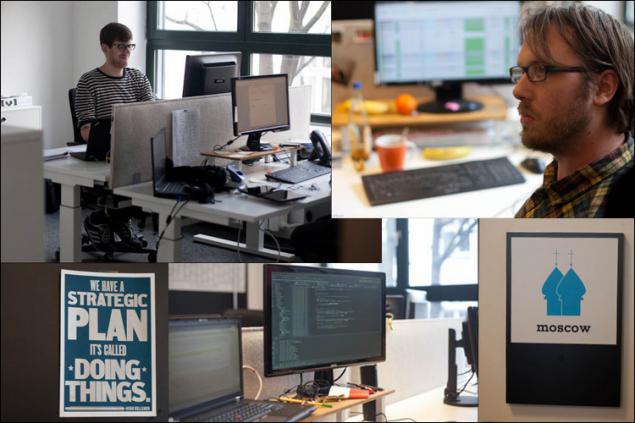
«And the darkest peregovorku we called Moscow» sup>
It was something like this. The boys sat in the attic, drinking compote - and then the idea came to him. They decided to make a site about products and prices in Germany - you know, the type of Yandex.Market our only with geolocation and subscriptions. The problem was that in Germany, whereas the main retail core offline.
The head of the network, for example, could be the venerable 77-year-old grandfather. B> No, he had heard about the Internet, but I suspect that it's kind of tricky SMS. Mail, it is possible to him are printouts every morning. And he believes that what worked the last 30 years, and will work in the next 10. This situation where a lot because big business in Europe often manage family. The most beautiful, the guys still found something as simple as a log, but a very profitable way to use it to develop their project.
Carefully, Traffic - a lot of photos of their office.
So, Berlin - a three and a half million inhabitants. They are positive, solvency, modern and very fond of shopping. Smartphone almost everyone, internet penetration is much higher than in Russia. Plus it is a city of startups - are relatively easy to obtain financing, quite cheap rent an office and live.
Next? Then they still gash his project in 2008, and opened in several other countries. For me, their work - perhaps the first example of close friend of IT-startups, which aims - something practical, rather than access to a large investor.
So when the opportunity to go to the press tour and climb round the office KaufDA, of course, I agreed. Now let's see how things are going at the German guys.
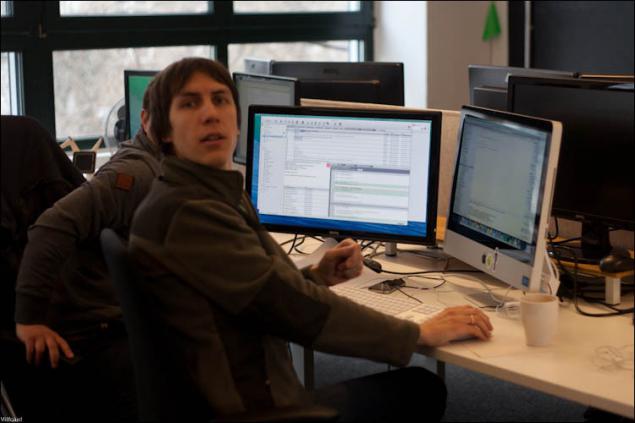
Pair programming. Looking at us the only Russian in the office - Ukrainian. In this case, the command code from Moscow, he did not even see. UPD: it turns out, this n0_quarter i>
The source data h4>
So, at the start you just a couple of people. Leader - Christian Geyser - well versed in IT and business, plus he knows the market needs to experience at Goldman Sachs in London and McKinsey in Zurich. There attic and idea - to make geolocation service, where you can search for products on the map. Kind of like typed "blanket" - and find out where you can buy a blanket nearby, plus a look through the catalog stores.
The idea is that all of this would be to make money, if not the same "but" in the form of retail, which do not really understand why it is such a thing. They even XML unloading of goods not - and do it for a small project, no one will.
The truth is, we all have a paper catalog. B> is Germany, where catalogs - it is one of the main sales channels. They are given in order, send mail to them and sometimes even spam. And here begins the paranormal. Our heroes are taking this directory and accurately parse - where the machine where hands.
Why the paranormal? Because these directories sea - and hands is simply not processed. But no, nothing of the sort - it turns out, it is necessary to negotiate only with large networks, where one directory makes it possible to immediately cover a couple of hundred stores. Second, the head does not fit, it is possible to show only the 5-7% range - auction items, bestsellers, and the like. But the Germans, it appears, is working on a "Hurrah!».
So, at some point there is a site that allows you to score a product name and find it on a map of the city.
And now the coolest ever h4>
Not only do a startup that works. It is important to develop it enough to have money and a mobile application and a normal office and much more. And now, three years after the start of the transaction is completed. Project KaufDA bought the publishing house Axel Springer AG - is that «Maxim» and «ComputerBild».
The logic is perfect. Small project can become a serious problem in the future - because, in fact, he slowly takes the audience in print advertising. Purchase of Axel Springer AG removed the threat. In theory, he could immediately bury the project, but no - the share was divided so that about 20% of the shares remained with the original team. Also did not change CEO.
Now, one more thing. Axel Springer AG is able to sell advertising and is well known to all in the market. German people do not ask, you have to buy his services or not - the only question is how to use the budget. Therefore, the project very quickly managed to capture about 80% of the market.
There have already begun to start different clones, but with such a database could only safely expand.
Regional versions h4>
The obvious danger was that in the large countries the project may not be the first on the market - and when he gets to the region, there will already be a strong competitor. And while the entry threshold is passed (basic software for different countries, in general, the same). So the next step was rather rapid expansion. They now have offices in Chicago, Paris, Barcelona, Sao Paolo and Moscow.
In each country its name. We - Lokata. About our market, Christian said that if it comes out in Russia - this is proof that the model is suitable for almost all countries. For him, it is a challenge: the market is large, but it is not understood.
Now let's take a look into the kitchen all this.
Office h4>
We come here from the street and go to the houses in office buildings Petersburg:
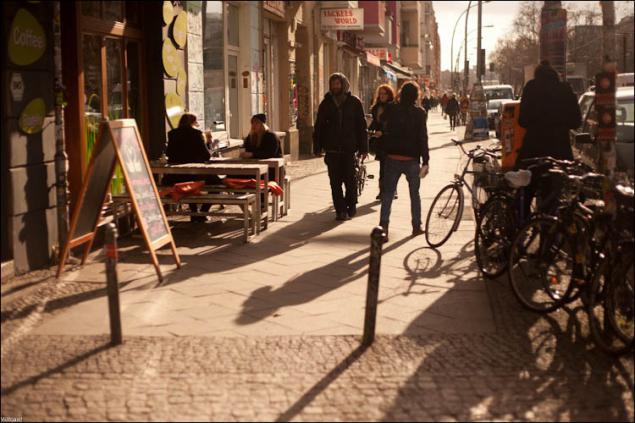
In Berlin, really love to ride bicycles, so before the two-storey office veloparkovki:
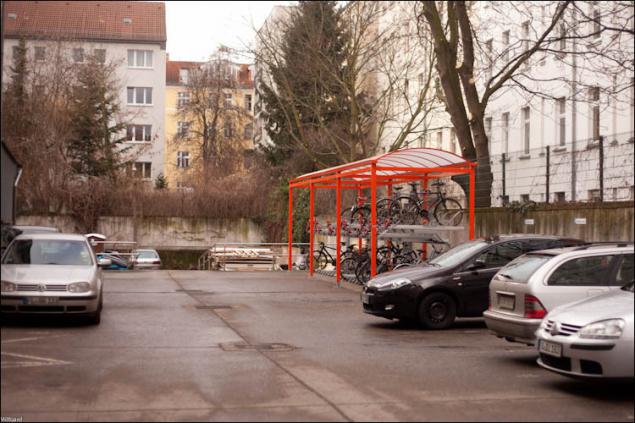
The team - developers almost the entire planet. Christian says that every year they have a new office - the constant expansion.
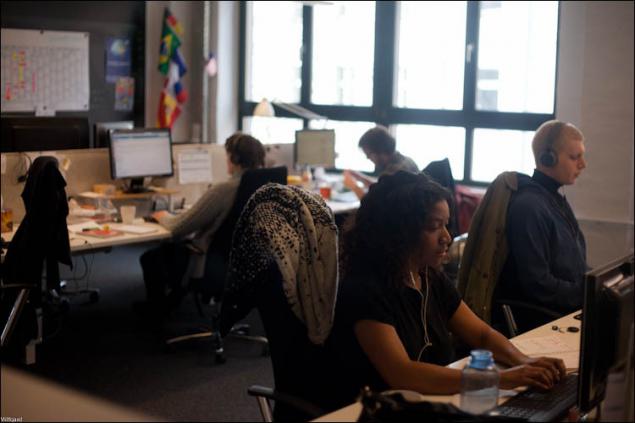
Here is the office space. I>
In Berlin constantly need IT-specialists, mostly - the developers. B> For comparison - the average salary higher than Moscow, but the same cost of renting an apartment - below. Locals claimed that 500 euros is quite possible to remove the center (not right in the center, but by analogy with our Garden) one-bedroom apartment. In Moscow, the same apartments start at best, from 700 euros (about 35 thousand rubles). With knowledge of English is ready for operation. Developers are looking for in all countries and are discharged here - in the office even met a resident of Australia. That is why Berlin - it's almost IT-capital city in Europe. Well, let's say, one of the hubs.
This creates an environment in which to motivate people to wage very difficult. Therefore, large-scale projects are invested in particular in the office - a place where comfort and cool get hold of the best developers.
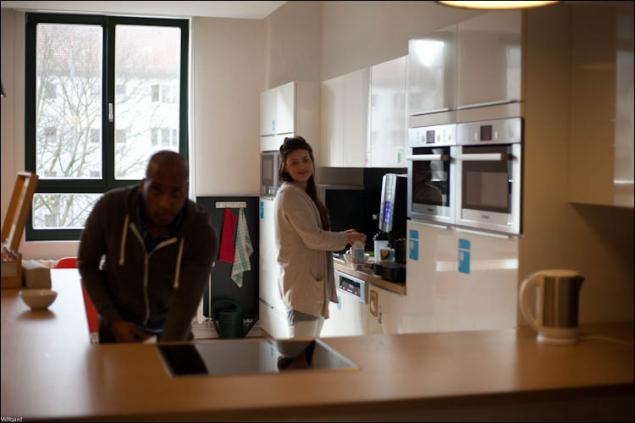
Kitchen. Here they feed on the fact that they themselves bring from home, there is no free lunch. I>

In the sandwiches stuck tooltips i>
The roof was not allowed - recently someone has managed to climb to the floor through the "hole" in security, so they are still locked out and rework something.
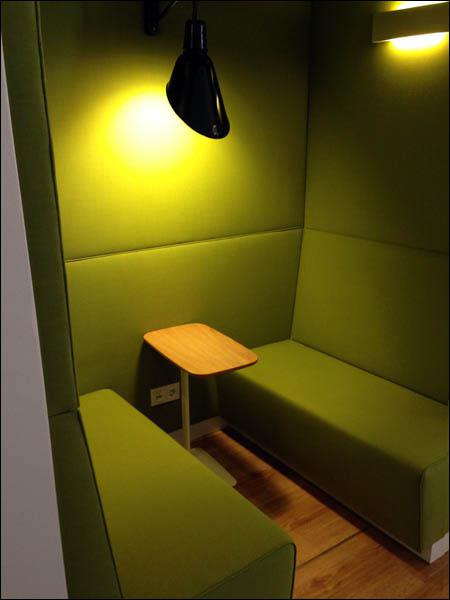
Next to the kitchen there are two like these mini-room. Table under the laptop, sockets, sofas. It is very convenient to call, briefly discuss something or just to work the guest office. Cool. I>
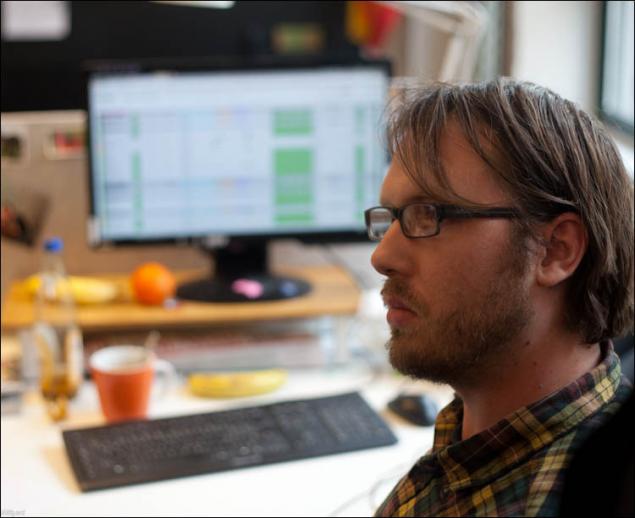
This guy now checks the new directory - look how well made binding. Manual work. I>
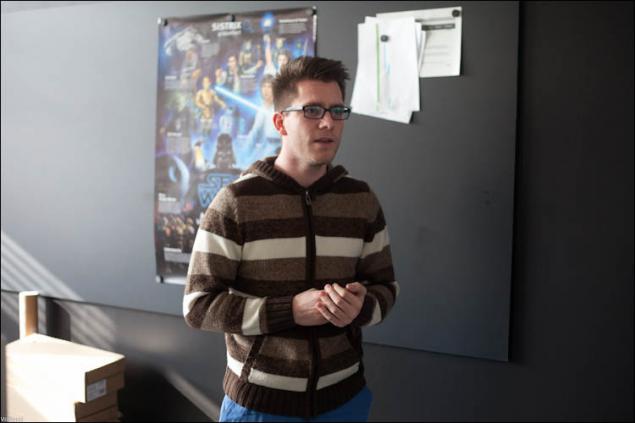
SEO-specialist i>
The approach to SEO in general is very interesting for Russia. B> They do not buy links, in principle, follow the guideline as Google. In Europe and the United States they are very well optimized for Google, but here we have a problem by Yandex right places. However, they say that the requirements of Google - primary.
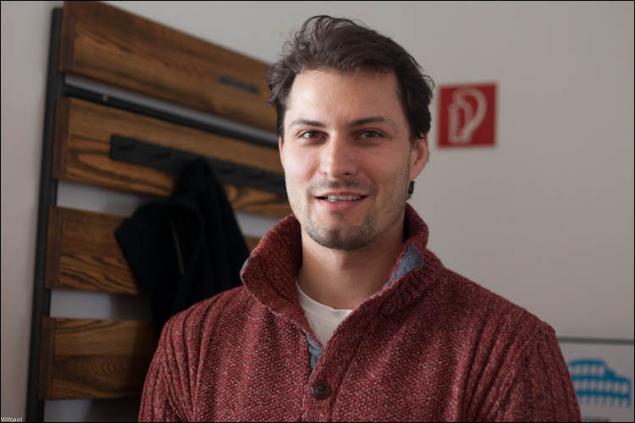
Thomas, Technical Director i>
The project operates 5 IT-teams, plus there are more Russian and Brazilian developers - they are engaged in localization and bolted local features. Judging by the organization of work teams - a very good architecture and backend firmly divided with presentation layers. Using Agile / SCRUM, running sprints for two weeks as Continuous Integration. And walk around salespeople with new ideas. Code rummaged between teams from different countries.
Thomas did not like the German CTO. They say that when they were in talks with investors, it only came with suds tanned, and the team is very worried that the investor does not believe about a strong IT-side.
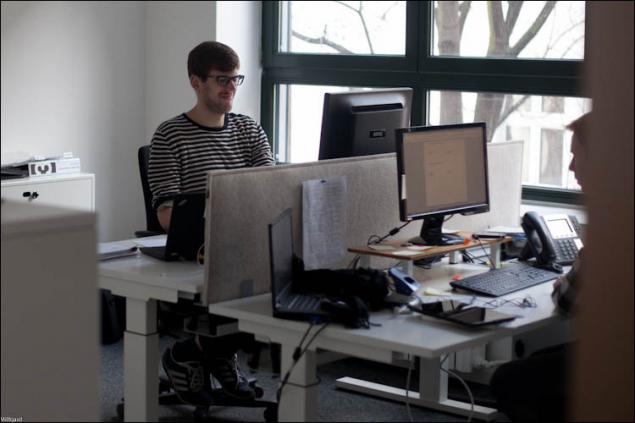
And this is - correct pros. Only he treasurer of the company. I>
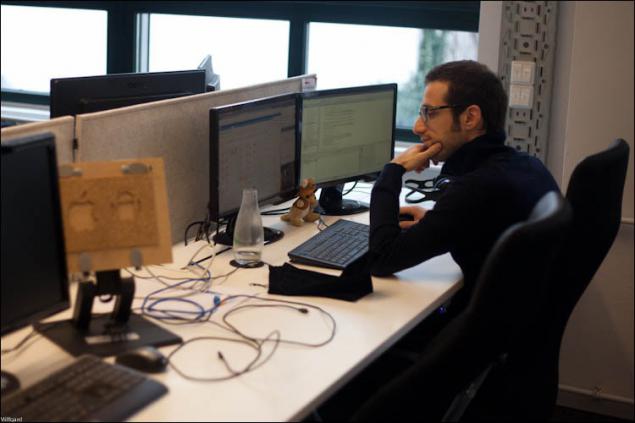
Many desktop + laptop screen or two. I>
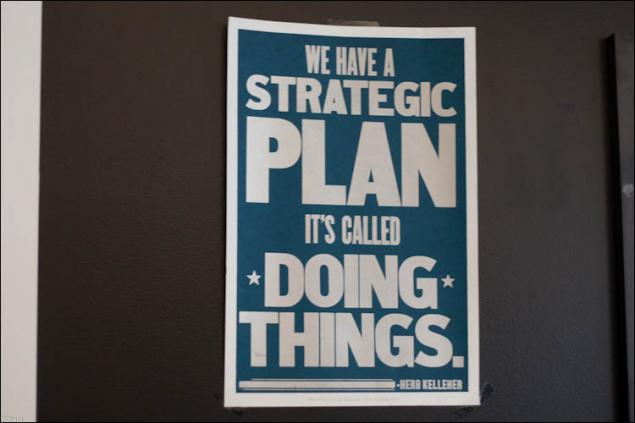
Write code! I>
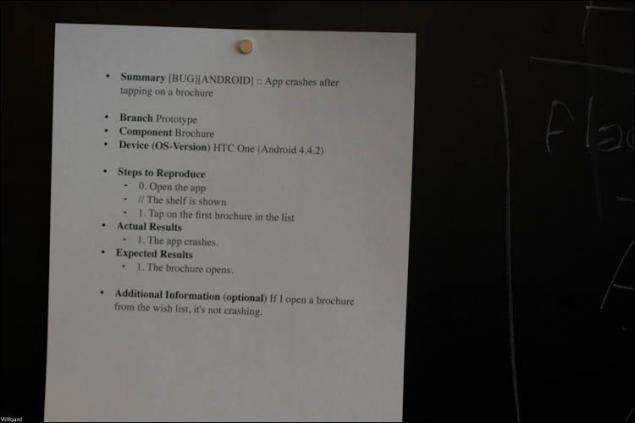
The form of bug reports i>
At the backend command hangs here is a screen that shows the current status in real time. Looks very cool:
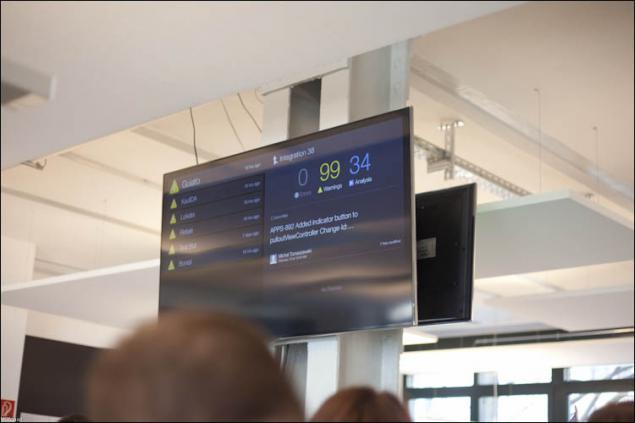
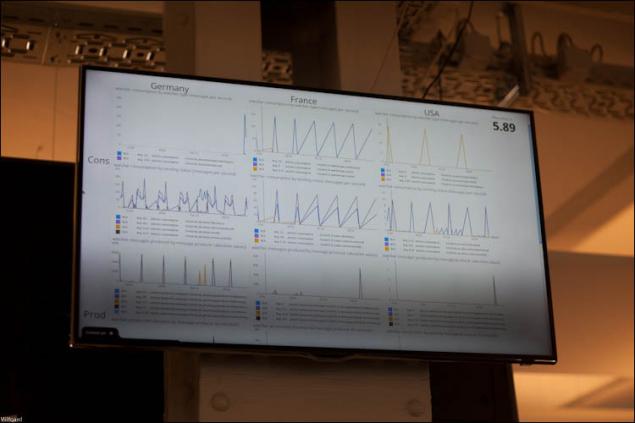
Agile-board:
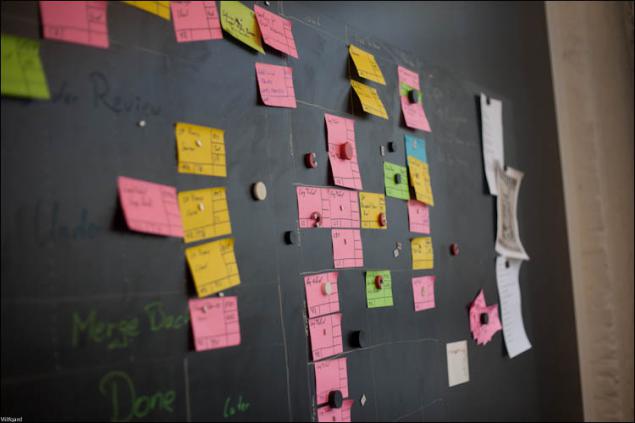
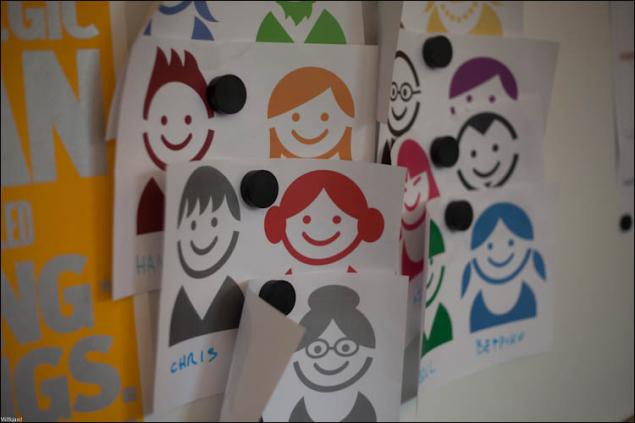
Remembers about the user scenarios for yuzabilistov. By the way, the designers are very pleased to Russian market. The fact that we have the largest relative share of tablets to smartphones - that is, more people see the directories on the big screens. In other countries, the share of small screens above. I>
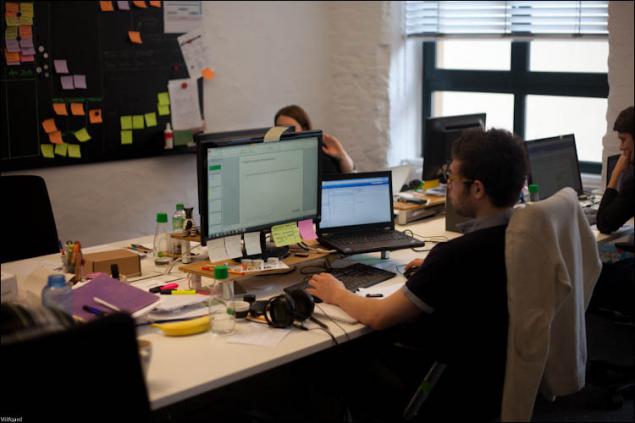
In the stickers actually almost everything. I>
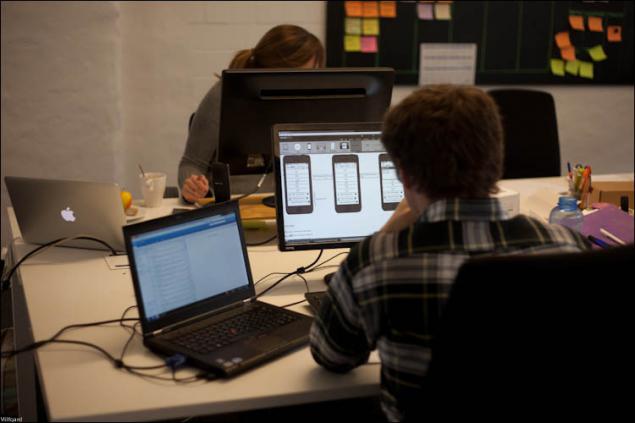
The development of the mobile version of i>
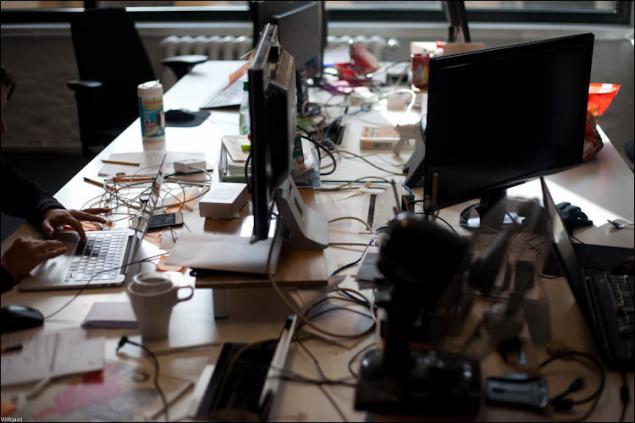
Tables content managers. Judging by the comments, it's just an incredible mess quintessence) i>
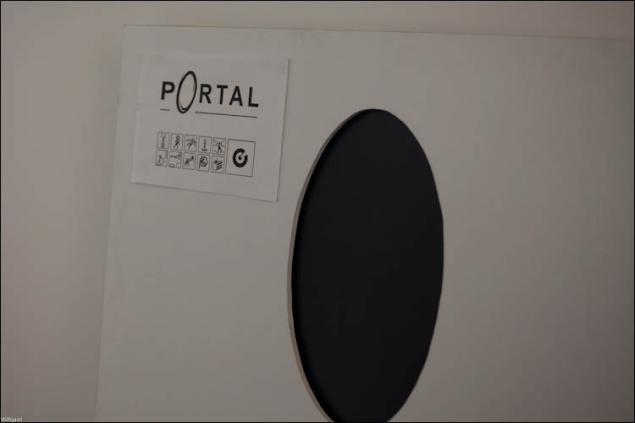
Suddenly, the art on the wall. I>
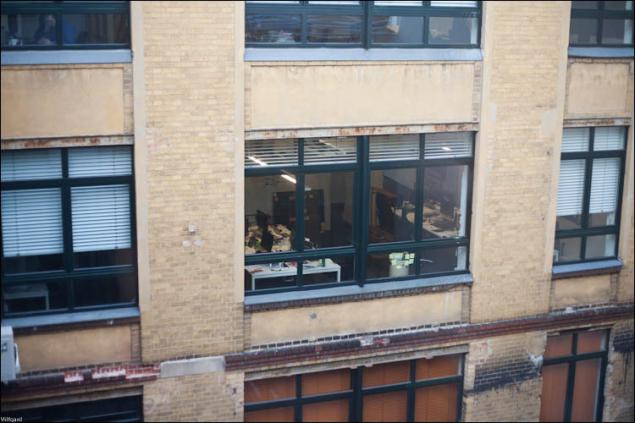
From the windows of tops can be clearly seen that the departments do i>
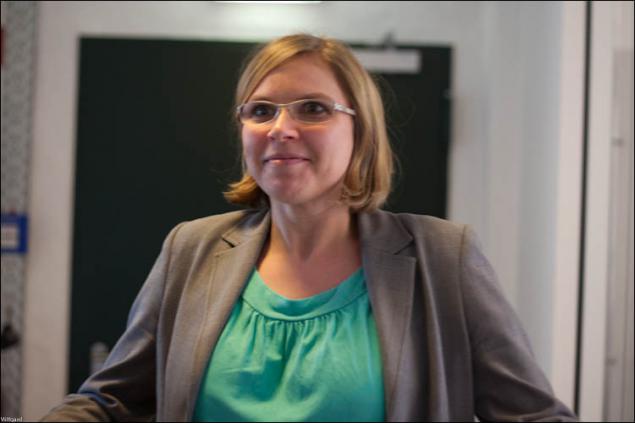
HR. Looking for developers purposefully, always directly (no agencies). When a vacancy, usually has watched about 100 candidates from around the world, 5 of them invites to Skype interview. Then selects one. Turnover below the average for Berlin - a year out of every seven, as usual - one in three. Says, very easy to find people with technical skills, but incredibly difficult ones that will work in a team and to communicate properly. A common code, all need to understand what and why - plus everyone should be interesting. Therefore, such a selection. I>
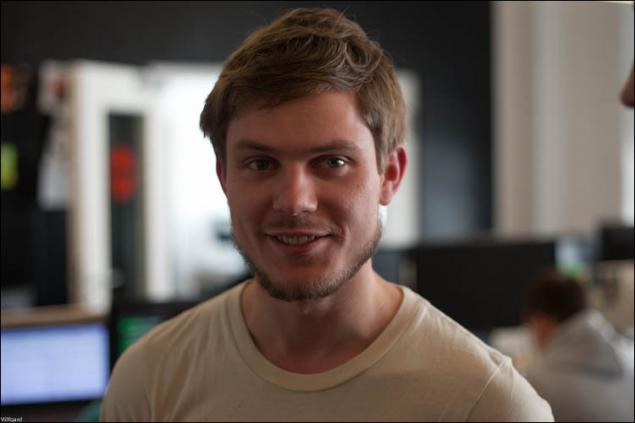
An employee who in the project from the beginning i>
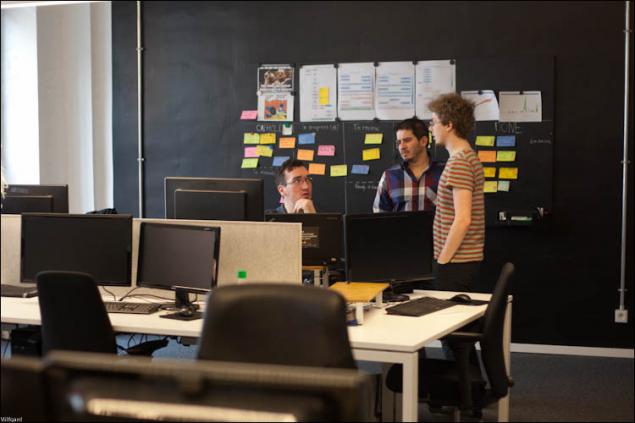
Meetings standing - very cool. During the meeting, they fixed everything on the blackboard behind. I>
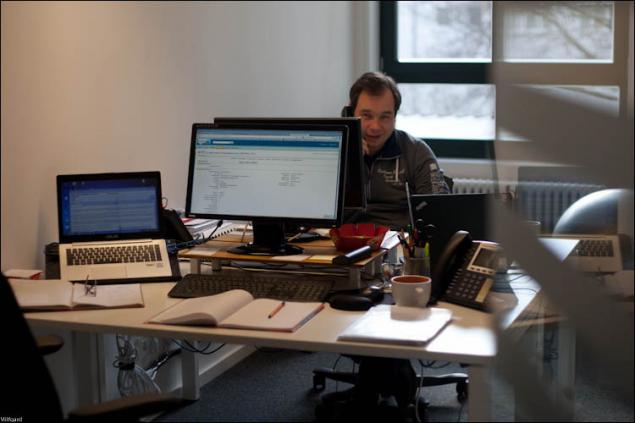
The only prodazhnik. The smaller of the office - the better. They are usually at the meetings: big business over the phone or e-mail does not work. I>
Another thought about the time salespeople - they are mostly from the print or television market. That is not saying incomprehensible words for the customer, and it is understood the good old terms that were 20 years ago. That helps a lot. CEO is also constantly engaged in sales - it is important to go as a representative of the company to the playoffs.
Why it does not solve their own application stores? H4>
Let's rewind the back a little. Geo-information services. Why it exists at all, in fact, it would seem obvious step - retail should release your application with the catalog? But no, does not work. For example, in Russia Lokata application downloaded more than 600.000 times, and application networks (According to unconfirmed reports) on average download of 10-20 thousand times. They explain it simply, you can pick up on the tablet or phone directory 1-2 favorite stores, not 5-10. And here everything is in one place, plus search.
The most unexpected was the fact that a large portion of our users Lokata enjoys the attention given to the shops products (supermarkets). This may seem surprising at first glance: for food model "two houses" implies a permanent job with a paper catalog. These newspapers are directories on each hand: there are the discounts, new items and seasonal products. Paper versions are quite increase the average check - and the online version on the same directory Lokata does the same thing. Plus, as it turns out, there is a functional checklist purchases, which is quite convenient for the wives, husbands collect in store.
The second important vector of the application - the ability to subscribe to news category. For example, if your daughter's three dolls "Barbie" - cool it would be to know when the store on the corner there will be new. To get his side on the way to school - or to still be in the know and buy. I think it is a functional subscriptions interest - just something that can make the application of this class really useful.
And the third - it is an opportunity to push notifications to shop around. It works like this - go to the mall, and you message arrives that on the fifth floor at your favorite store now new collection. We tried to do as part of the test is about as ordering advertising with mobile operator (in the area of the BS shopping center surrendered SMS Discount on certain products), and it's pretty fun to work with. Given that the application price contact a fraction, it is probably cool. Protection against multiple notifications also already "out of the box».
Conversion h4>
Naturally, to track the arrival of people with such GeoPoisk the store is almost as difficult as to understand how many people came from advertising on television. That is, as usual - decomposition or demand a poll.
The survey they conducted. The results are intriguing: the fact that the category of supermarkets 70% were looking for something decided to visit the shop and 63% made a purchase (hard not to buy something, if you are at the grocery). The average check at the grocery this buyer - 1600 rubles. In electronics, the same rate shopping - 64% of purchase - 27%, average check - 13.200 (9.600 and for household appliances). This data Lokata for Russia. Yes I Do! Moscow, they have, by the way, quite a few in the audience - it is not 80/20, but rather, on the contrary, when the region is dominated.
On the whole h4>
The German project is now in the black - it is a major achievement. 60% of the profits create users with smartphones and tablets. They now have more than 2 million mobile audience in a month, 14 million downloads of the German application (versus 600,000 in the Russian Federation), they are in the top supermarkets in Europe. Actively open offices in other countries. Where - surprise every time, such as "Project Switzerland" was opened in the United States. Now, judging by the boards, in the "Project Tokyo '- probably Australia.
About Russia - trying to develop, but faced with the fact that they are always sent to a specialist site. And when he learns that the site people will not come, but come to the store - it immediately becomes uninteresting because he usually reporting it to visitors online. Well, here Lokata not behind a player like Axel Springer AG, it was not necessary to explain that the project required.
The main path of evolution of e-commerce in Germany h4>
The sweetest thing for us - it is here this excursion into the future. To understand why these applications demand and where to look in general, it is necessary to say a few words about the development of the market. Just that maybe we are waiting for a couple of years.
Now there are concerns that aggregators can kill online shopping. For example, of Yandex.Market simply not forwarded to your website, and prokidyvat you order - so you'll be just one of the hundreds of faceless supplier. So, in Germany the market has evolved far enough, but it did not happen. Here's why:
- defocus with prices loyalty
When the German buys iPhone, he does not buy the cheapest possible on the Internet, and the goods at a fair price. That is a difference of 10% of the price it is currently compensated by well-known brand, its history and the fact that people have already bought something there. For example, once one of the cheapest store in Moscow pleer.ru tried to sell me a new view of the camera with mileage of 560 frames (and claimed at the same time that it is collected at the Chinese factory, although there's only manufacturer in Japan) - I bought exactly as elsewhere, and never spoke to these comrades. Berliners, according to my impressions are more likely to trust those who are already taken, than we have in Russia - hence greatly reduce competition on price.
- Honest sellers
This we realized a long time ago, but in Germany, I saw it was a trend. Seller task as a whole - not to sell something here and now, and save the buyer. To do this, you need only give honest advice, not vparivat and even sometimes discouraged from errors. It's like a salesman in the village: today he let you reach 200 rubles, but this win the trust of the entire area for 10 years ahead. It can dissuade. He might argue. He has a lot. Because the buyer - his friend. A friend you do not do bad, and the next you do not try to "cut the lungs attendants." The credibility of the seller creates an opportunity to consult with him quietly in the purchase, and this is important because ...
- The buyer does not know the specific product model
In most cases, the buyer comes to the store or the store's website to find out what is best and why. For example, if you buy a laptop now we read the forums, watch reviews, tests anpaki and so on. The Germans go to the store and dipstick. Because they trust the seller - and because in place it is clear that to take. That is important not just to be the first at the price, and provide the opportunity to help with the selection. When the seller becomes an authority in the choice - it's very cool. Let's try to remember here, in what stores with electronics dealer would be respected?
- Network think about their own brands
Or already produce them. When you have something that you do only problem there is no choice. Because if you need a product, no matter where he was sold, you get a profit - he promoted you. And go for it, by and large, only to you.
What to expect from MWC this year?
Results of 2013 for Tesla Motors: $ 2 billion in revenue and plans to take over the world






























